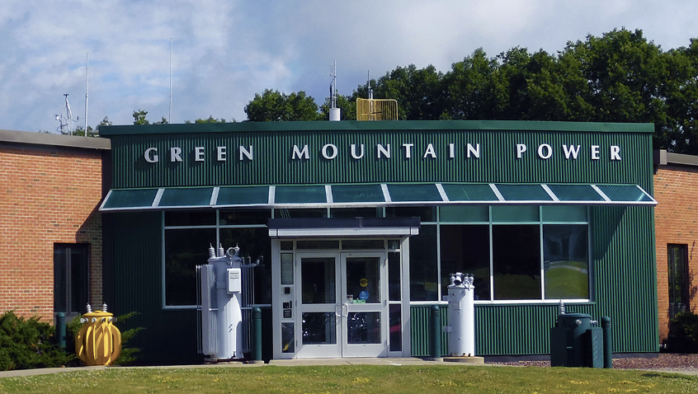
Green Mountain Power
Green Mountain Power (GMP) launched its Zero Outages Initiative, Tuesday, Oct. 10. It’s the first utility in the country to commit to a comprehensive, data-driven plan that creates layers of resiliency across Vermont by building on GMP’s successful and proactive undergrounding and storm-hardening of lines, as well as deployment of energy storage through batteries and microgrids. Combined, this work will keep customers and communities connected while lowering costs for all.
GMP serves more than 270,000 residential and business customers in Vermont.
The phased initiative rapidly accelerates this resiliency work through 2030, tackling the hardest hit areas in rural central and southern Vermont first, following a devastating year for the state that saw an unprecedented string of damaging storms due to climate change.
“We all see the severe impacts from storms, we know the impact outages have on your lives, and the status quo is no longer enough,” said Mari McClure, GMP president and CEO. “We are motivated to do all we can to combat climate change and create a Vermont that is sustainable and affordable, but we must move faster. Together with our customers, regulators, our communities, and that Vermont spirit that manages to innovate despite all odds, we have all we need to revolutionize the energy system and ensure a stronger, more affordable Vermont.”
How it works
The Zero Outages Initiative leverages circuit-level resiliency data, combined with the Centers for Disease Control (CDC) community vulnerability data, topography, and other metrics to determine the right resiliency approaches for each of GMP’s 300 circuits. This ensures that all customers experience zero outages, whether in a remote area, or in a densely developed downtown.
The Zero Outages filing with regulators addresses the first phase of the initiative and calls for an investment of up to $280 million over the next two years, with $250 million of that for undergrounding and storm hardening lines, and $30 million for energy storage.
The second phase of the initiative will involve another filing with regulators and will seek approval to accelerate and expand beyond 2026, while outages and associated repair costs start to drop off.
For context, major storm costs are escalating and not sustainable. In the past 12 months alone, major storms required more than $45 million in repairs. Since 2014, major storms caused $115 million in damage across GMP’s service area, with 60% of that in the last five years, 40% of that in just the last two years, and the $45 million in 2023 was the most yet. That is money spent to repair the existing system and get customers reconnected after storm damage, and it does not prevent future outages.
“Projects to reinforce the grid and integrate energy storage are more important than ever. We know that we will continue to see an increase in extreme weather events, and research shows that every dollar invested in disaster preparedness and mitigation ultimately saves several times more in avoided response and recovery costs, while also preventing health and safety impacts,” said Jeff Schlegelmilch, director of the National Center for Disaster Preparedness at Columbia University’s Climate School. “Building resilience into the grid is essential to sustaining this lifeline, which facilitates broader well-being.”
During the unprecedented storms over the last several years, some Vermonters have already experienced the benefits of the type of work planned under the Zero Outages Initiative. GMP has already installed 50 miles of underground lines in rural residential areas and those customers did not experience damage to those lines during these major storms. In addition, where spacer cable has been installed, trees from outside the rights-of-way fell on the lines, but did not cause an outage.
The three worst storms in GMP history, in terms of outages, happened in just the last 12 months, with highly skilled lineworkers like Mike Tyler based out of Rutland working around the clock to repair storm damaged equipment and get customers reconnected.
“This will be a game changer. For customers, the lights stay on for them, and then for us in the field, it increases safety. Every line worker I know has had a close call, and being up on a pole when there is a big gust of wind isn’t a great feeling. Our exposure to the most severe elements will be reduced with Zero Outages, and our neighbors stay powered up,” said Mike Tyler.
The Zero Outages Initiative would provide residential batteries to customers in remote locations, delivering resiliency where it is needed most first, with a goal to have all customers have energy storage.
Vermont regulators recently agreed to GMP’s request to lift the enrollment cap on its home battery programs, so all customers who’d like to get cost-effective home batteries can now sign up. There are currently 5,000 batteries in customers’ homes.
This filing kicks off a public review process through the Vermont Public Utility Commission. If approved, the first projects could get underway in the spring/summer of 2024.




